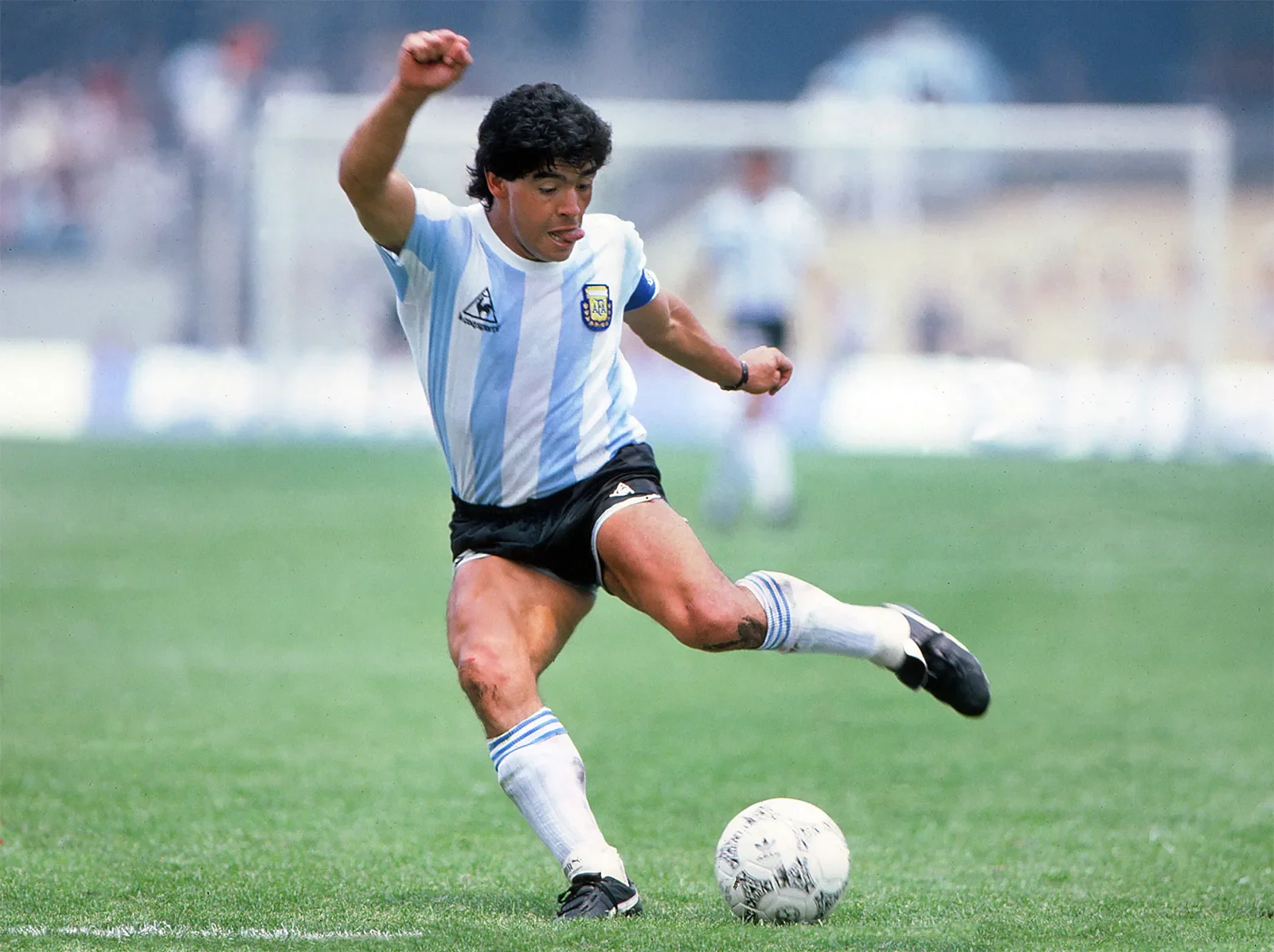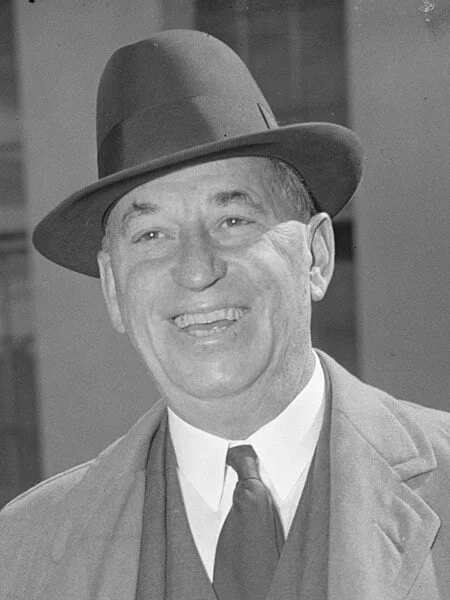Real Celebrities Never Die!
OR
Search For Past Celebrities Whose Birthday You Share

britannica.com
Diego Maradona
Birthday:
30 Oct, 1960
Date of Death:
25 Nov, 2020
Cause of death:
Cardiac Arrest
Nationality:
Argentine
Famous As:
Argentine professional football player
Age at the time of death:
60
Diego Armando Maradona Franco's Quote's
Diego Maradona was more than just a footballer—he was a force of nature. A diminutive yet electrifying presence on the pitch, he played with a mix of artistry, audacity, and raw brilliance that made him a legend. From the slums of Buenos Aires to lifting the World Cup, Maradona’s story was one of triumph, controversy, and unrelenting passion. His genius with the ball was only rivaled by his tumultuous personal life, but through it all, he remained an icon, worshipped like a deity by millions around the world.
Early Life: A Star Born in the Barrios
Diego Armando Maradona was born on October 30, 1960, in Villa Fiorito, a shantytown on the outskirts of Buenos Aires. Raised in poverty, he was the fifth of eight children in a struggling but tight-knit family. Football was his escape, and from an early age, his talent was undeniable. At just eight years old, he was scouted by Argentinos Juniors and joined their youth team, Los Cebollitas, dazzling spectators with his dribbling skills and unparalleled vision. Even then, it was clear—Maradona was special.
Rising Star: From Argentinos to Boca
At 15, Maradona made his professional debut for Argentinos Juniors, quickly becoming the league’s most exciting player. His performances caught the eye of Boca Juniors, his boyhood dream club, where he moved in 1981. In just one season, he led Boca to the Argentine league title, cementing his status as the brightest young talent in world football.
Barcelona: Talent and Turmoil
In 1982, after a record-breaking transfer, Maradona joined FC Barcelona. Expectations were sky-high, and while he showed flashes of brilliance, his time in Spain was plagued by injuries, clashes with management, and an infamous on-pitch brawl in the 1984 Copa del Rey final. By then, it was clear: Maradona needed a new stage—one that would allow his genius to flourish without constraint.
Naples and Immortality
That stage was Napoli. In 1984, Maradona made an unexpected move to the struggling Italian club, and what followed was the stuff of legend. He transformed Napoli from underdogs to champions, leading them to two Serie A titles (1987, 1990), a Coppa Italia, and a UEFA Cup in 1989. In a country dominated by the northern giants, Maradona gave the people of Naples something to believe in. His face adorned murals, his name was sung in the streets—he wasn’t just a footballer; he was a savior.
1986 World Cup: The Hand of God and the Goal of the Century
The defining chapter of Maradona’s career came in Mexico in 1986. As Argentina’s captain, he carried his team to World Cup glory, delivering some of the most unforgettable moments in football history. Against England in the quarterfinals, he scored two of the most famous goals ever—one illegal, one divine.
First came the "Hand of God," a punched goal past the goalkeeper that the referee failed to spot. Moments later, he dribbled past five English players in a breathtaking solo run, scoring what was later dubbed the "Goal of the Century." Argentina went on to lift the trophy, with Maradona at his mesmerizing best, cementing his place as one of football’s greatest ever.
Downfall: The Struggles of a Football God
As his fame skyrocketed, so did his troubles. In Naples, Maradona’s personal life spiraled out of control. He became entangled with the city’s criminal underworld, battled drug addiction, and struggled under the immense weight of expectation. In 1991, he tested positive for cocaine and received a 15-month ban from football. Though he played on, with spells at Sevilla, Newell’s Old Boys, and Boca Juniors, he was never quite the same.
Maradona’s off-field struggles continued post-retirement—health issues, drug rehabilitation, and erratic behavior kept him in the headlines. Yet, despite everything, his love for football never waned. He coached Argentina at the 2010 World Cup, bringing his fiery passion to the sidelines, and remained a beloved yet controversial figure until the very end.
Legacy: The Eternal Number 10
Diego Maradona passed away on November 25, 2020, at the age of 60, leaving behind a legacy as complex as it was extraordinary. To many, he was the greatest to ever play the game—a footballing artist whose left foot painted masterpieces on the pitch. To others, he was a tragic hero, a man consumed by his own legend. But to the people of Argentina, Naples, and beyond, he was simply "El Diego"—flawed, brilliant, unforgettable.
In death, as in life, Maradona remains larger than the game itself. His story is one of triumph and tragedy, a reminder that genius often comes at a cost. But when the ball was at his feet, all that mattered was the magic he could create. And for that, he will never be forgotten.
Name:
Diego Armando Maradona Franco
Popular Name:
Diego Maradona
Gender:
Male
Cause of Death:
Cardiac Arrest
Spouse:
Place of Birth:
Lanús, Argentina
Place of Death:
Dique Luján, Argentina
Occupation / Profession:
Personality Type
Entrepreneur ESTP-A / ESTP-T Smart, energetic and very perceptive people, who truly enjoy living on the edge. Diego Maradona dazzled the world with his skill, charisma, and relentless passion, embodying the spirit of a true champion both on and off the field.
Despite his football genius, Maradona struggled with drug addiction and health issues throughout his life, which affected his post-playing career.
Diego Maradona is regarded as one of the greatest footballers of all time, famously leading Argentina to victory in the 1986 FIFA World Cup.
He passed away in 2020 at the age of 60, leaving behind an unmatched legacy in the world of football.
His controversial "Hand of God" goal against England in the 1986 quarter-finals remains one of the most debated moments in football history.
Diego Maradona is widely regarded as one of football’s greatest players, winning the FIFA World Cup (1986) and the Golden Ball for his outstanding performance.
He was named FIFA Player of the Century (2000, shared with Pelé) and scored the Goal of the Century (2002) for his famous solo run against England.
His legacy lives on, especially at Napoli, where his No. 10 jersey was retired after leading them to two league titles.



